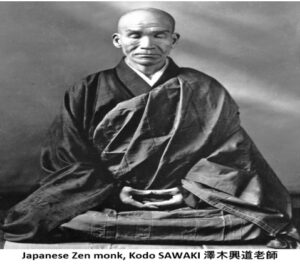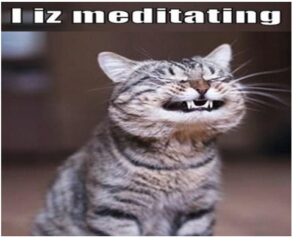Seventeenth Afternoon – Bài Tập Hôn Trầm – Instruction: Relaxing – Sinking Mind – Song ngữ
English: Joseph Goldstein.
Việt ngữ: Nguyễn Duy Nhiên.
Compile: Lotus group.

Seventeenth Afternoon – Bài Tập Hôn Trầm – Instruction: Relaxing – Sinking Mind

It is good to periodically relax the whole body, part
by part, letting go of all the accumulated tension which may
gather as a subtle reaction to unpleasant sensations.
When there is pain somewhere in the body, there is often a tendency to tense elsewhere as a reaction. It is good to periodically relax the whole body, part by part, letting go of all the accumulated tension which may gather as a subtle reaction to unpleasant sensations. Then it becomes easier to sit back and again watch the flow.
Mỗi khi có một cơn đau xuất hiện ở đâu đó trong thân, ta thường có khuynh hướng phản ứng bằng cách căng thẳng những bắp thịt ở một nơi khác. Vì vậy thỉnh thoảng ta nên buông thư, thả lỏng toàn thân, từng bộ phận một, buông thả
sự căng thẳng tích tụ vì những phản ứng sâu kín đối với các cảm giác khó chịu. Nhờ vậy ta có thể tiếp tục ngồi lại mà quán chiếu các hiện tượng một cách dễ dàng hơn.

Open your eyes enough to be looking down at the
floor a foot or so in front of you, without focusing on anything.
Held palms upwards, one on top of the other, loosely in the lap.
Make use of the hours of resolution when you are not changing position to spend an hour with complete non-movement. This kind of resolution strengthens the mind in several ways. The effort and energy factor become very strong, and the stillness of body also strengthens the concentration and mindfulness.
Hãy lợi dụng những quyết định về các giờ ngồi yên của mình, để ngồi một giờ mà hoàn toàn không cử động hay nhúc nhích. Sự cương quyết này sẽ làm gia tăng sức mạnh của tâm trên nhiều lãnh vực khác nhau. Sự tinh tấn và năng lực sẽ được thêm vững mạnh, và sự yên lặng của thân sẽ làm tăng trưởng định lực và chánh niệm.

Generally, our body reacts to every little discomfort
or unpleasant feeling with a slight change in position,
with feeling a little discomfort, then a slight shift of posture…
Generally, our body reacts to every little discomfort or unpleasant feeling with a slight change in position. We are usually unmindful of that whole process: feeling a little discomfort, then a slight shift of posture. By making the resolution not to move for an hour, we cannot avoid becoming aware of all these moments of unpleasantness and our conditioned reactions to them. The hours of resolution can be increased. If you feel comfortable with them, you can make that resolve at every sitting.
Thông thường thì thân ta có phản ứng đối với mọi cảm giác hay cảm thọ khó chịu, dù chúng thật nhỏ nhặt, bằng cách nhúc nhích thân thể. Nhưng chúng ta ít khi ý thức được tiến trình đó: cảm thấy hơi khó chịu, cho nên đổi tư thế một chút. Bằng cách cương quyết không cử động trong một giờ đồng hồ, chúng ta sẽ không thể nào trốn chạy, bị bắt buộc phải ý thức những giây phút khó chịu ấy và những phản ứng của ta đối với chúng. Bạn cũng có thể tăng những giờ ấy lên. Nếu bạn thấy nó trở nên dịu dàng, hãy quyết định ngồi lâu hơn.

As concentration improves, it is sometimes possible for the
mind to go into a pleasant dreamlike state. This is called sinking mind.
As concentration improves, it is sometimes possible for the mind to go into a pleasant dreamlike state. This is called sinking mind. You can sit a long time in that state. Be wakeful, don’t let the mindfulness get out of focus. When you feel yourself going into a kind of dreamy state of mind, make the effort to sharpen the mindfulness so that it is clearly aware of what’s happening in the moment. In that way, the wisdom factor is developed, experiencing the instantaneous arising and vanishing of thoughts, of sensations, of the breath, of states of mind. Don’t allow the mind to fall into a sinking state. That may happen when the sittings get very long. Be watchful. This is the basis of wisdom. Stay clearly attentive.
Khi định lực phát triển, đôi khi tâm ta có thể bị đi vào một trạng thái dễ chịu giống như mê ngủ. Ðây chính là hôn trầm. Bạn có thể ngồi được thật lâu trong trạng thái này. Hãy tỉnh thức, đừng đẻ chánh niệm của ta bị xao lãng. Khi nào bạn cảm thấy mình đang đi vào một trạng thái hôn trầm, hãy cố gắng gia tăng chánh niệm, để ta lúc nào cũng ý thức được những gì đang xảy ra trong giờ phút hiện tại. Ðược như vậy, trí tuệ sẽ khai triển, ta sẽ kinh nghiệm được tức khắc sự sanh diệt của tư tưởng, của cảm thọ, hơi thở, những trạng thái của tâm thức. Ðừng để tâm mình rơi vào một trạng thái hôn trầm. Ðiều này có thể xảy ra khi ta ngồi yên quá lâu. Hãy giữ chánh niệm. Ðó chính là căn bản của trí tuệ. Phải luôn luôn giữ một ý thức sáng suốt.
Sources:
Tài liệu tham khảo:
- https://theravada.vn/ba-muoi-ngay-thien-quan-loi-mo-dau/
- https://tienvnguyen.net/images/file/lHJ4Mqq01wgQAPRx/30-ngaythienquan.pdf
- https://www.tienvnguyen.net/images/file/8hKjNaq01wgQAKJW/the-experience-of-insight.pdf
- Photo 2:https://quotefancy.com/quote/897169/Ram-Dass-In-meditation-we-can-watch-the-itch-instead-of-scratching-it
- Photo 3: evdhamma.org/index.php/dharma/dharma-lessons/item/1067-buoc-dau-hoc-thien-phat-giao
- Photo 4:https://www.lanternaeducation.com/ib-blog/ib-meltdown-mindfulness
- Photo 5: http://evdhamma.org/index.php/dharma/dharma-lessons/item/288-43-buoc-dau-hoc-thien-song-ngu
